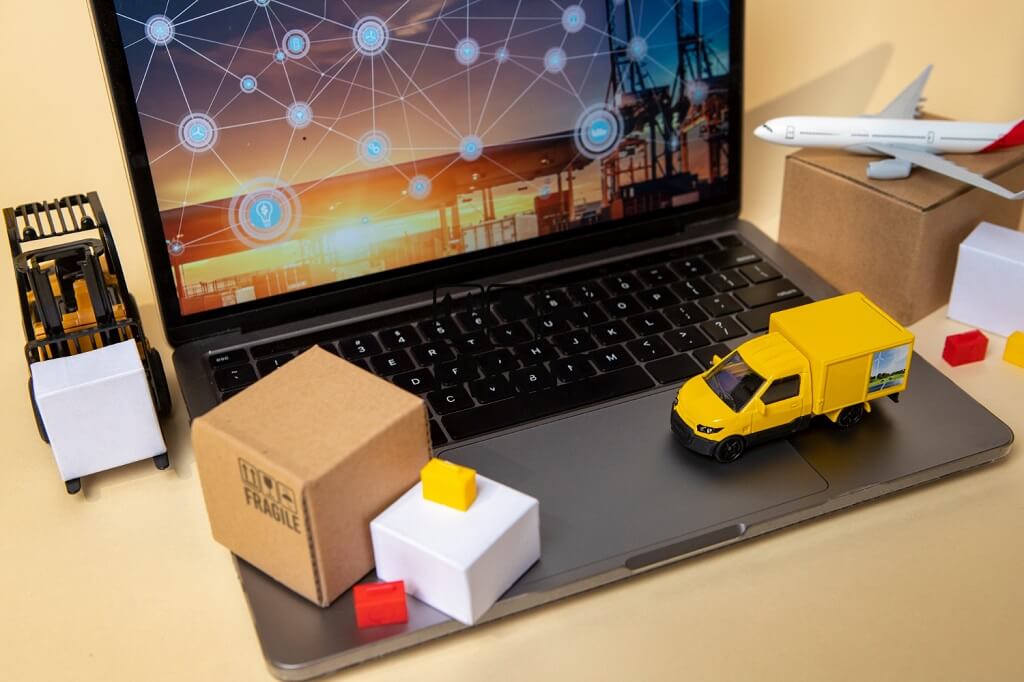Welcome to the full guide on Logistics App Development—a valuable resource for individuals looking for insights into the field of logistics-specific app development. Logistics is critical in guaranteeing the seamless movement of products and services in today’s fast-paced and linked world.
This book will serve as your compass, directing you through the complexity of logistics app development and steering you toward success, whether you are a seasoned professional or a beginner in the area of app creation. Let us go on this adventure together as we uncover the secrets of developing cutting-edge logistics apps that revolutionize the landscape of the business.
What Is Logistics App Development?
Logistics app development is the construction of applications particularly developed for tablets and smartphones to help organizations organize and manage the movement of products between multiple locations more efficiently.
These applications are critical in assuring smooth and timely delivery, optimizing item movement, and supporting effective logistics operations. Logistics app development, by using the power of mobile technology, enables organizations to increase overall efficiency and optimize goods movement, resulting in greater customer experiences and operational success.
Types Of Logistics Apps
1. Supply Chain Management
Supply chain app developers design custom apps for firms to keep track of their inventories and processes. It also improves the business’s efficiency. Furthermore, by tracking processes, these applications assist in identifying any faults in the supply chain process.
2. Fleet Management
With fleet management software, you can manage all of your transportation data more easily and quickly. Fleet management applications offer all of the critical information at your fingertips, making them simple to use and comprehend for anybody. Furthermore, these applications assist organizations in optimizing their entire fleet procedures and ensuring that all work is accomplished smoothly.
3. Driver Management
By controlling drivers’ data and satisfying their demands, these applications assure effective logistical procedures. You can follow the driver’s whereabouts, check their stock, and modify their profile using driver management software.
4. Warehouse Management
Warehouse management software aids in the organization and tracking of things in the warehouse. Furthermore, it simplifies all procedures, making warehouse management easier and more efficient.
5. Delivery Management
Businesses can use delivery management software to manage their delivery operations. These applications make it easier to organize and streamline the process of swiftly and successfully delivering items to clients. They also offer capabilities like as package tracking, driver assignment, route optimization, and delivery status updates to consumers.
Benefits Of Logistics App Development
- Enhanced Efficiency: Logistics apps streamline various processes, such as route planning, inventory management, and order fulfillment, leading to increased efficiency and reduced operational delays.
- Real-Time Tracking: These apps provide real-time tracking of shipments and vehicles, allowing businesses and customers to monitor the status and location of goods throughout the transportation process.
- Improved Visibility: With logistics apps, businesses gain better visibility into their supply chain, enabling them to identify bottlenecks, track inventory levels, and make data-driven decisions for enhanced performance.
- Cost Optimization: By optimizing transportation routes and improving inventory management, logistics apps help reduce operational costs and minimize wastage, leading to cost savings for the business.
- Faster Order Fulfillment: Automation and streamlined processes in logistics apps enable quicker order processing and delivery, resulting in improved customer satisfaction and loyalty.
- Accurate Inventory Management: Logistics apps help maintain accurate and up-to-date inventory records, reducing the risk of stockouts and overstocking, and ensuring efficient use of warehouse space.
- Data Analytics and Insights: Many logistics apps offer data analytics capabilities, providing valuable insights into supply chain performance, and enabling businesses to identify trends and areas for improvement.
A Step-by-Step Procedure for Developing a Logistics App
1. App Search
To begin, identify your company’s goal and scope, and then develop a plan around it. A thorough comprehension of the demand will provide you with specific suggestions for the sort of logistics application. Furthermore, app features and its technological stack contribute to the establishment of a solid basis for logistics app development.
2. MVP Development
It’s time to put your app’s idea into action now that you’ve discovered it. Additionally, hiring app developers or an MVP app development company is the ideal alternative for creating a product and bringing it to market. This strategy enables firms to test their products and show them to customers in less time and money.
3. UI/UX Designing
After you’ve identified your app concept and feature needs, it’s important to construct an intuitive and high-quality design that will appeal to your end customers. Furthermore, your logistics app developers must adopt a user-friendly UI/UX design to follow the appropriate route of app development.
4. App Development
Following the completion of the app design, the following stage is to run the code of the logistics app development process. Furthermore, you may implement all of the features and screen transitions by utilizing a competent technology stack and third-party apps.
5. App Testing And Maintenance
The next stage is to test the application’s functionality and fix any faults to achieve the best outcomes. As a result, mobile app testing is the most important phase before releasing the product to the public. Furthermore, you may maintain or upgrade the app in accordance with industry trends to guarantee that it runs well.
How Much Does Logistics App Development Cost?
It is difficult to estimate the cost of logistics app development due to the many functionalities and requirements of logistics applications. The estimated cost of developing a logistics app is highly dependent on the app required for a company. Let’s go check it out.
Logistics app development costs between $100,000 to $180,000 for midsize applications with average complexity and features. A simple logistics app with basic features will cost between $25000 and $100,000. A full-fledged logistics software with all sophisticated capabilities and interactive features will set you back at least $180000.
Conclusion:
Logistics App Development offers immense opportunities for businesses to optimize their supply chain operations, enhance efficiency, and deliver exceptional customer experiences. As technology continues to alter the logistics sector, remaining current on innovations and consumer input will be important in developing logistics apps to suit future expectations. Businesses may begin on a successful journey of logistics app development with the full insights and tactics presented in this guide, altering the way they manage their supply chain and transportation operations.











